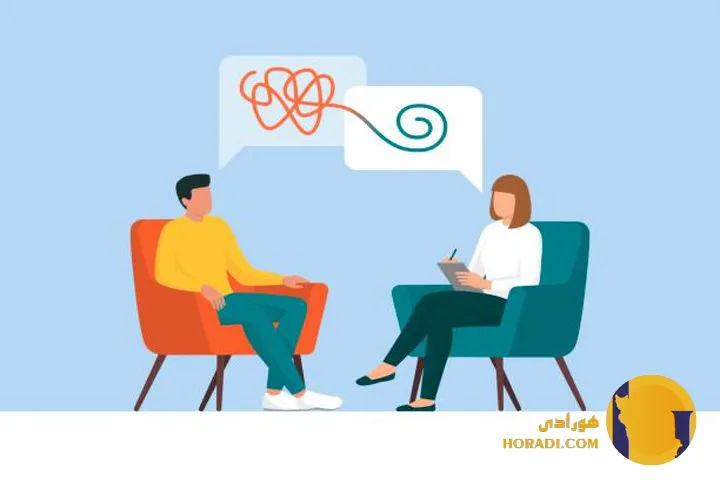
Signs You Need to Talk to a Therapist
Recognizing when to talk to a therapist can feel confusing, especially in your 20s or 30s when life is moving quickly and pressures are constant, but ignoring emotional struggles often leads to heavier mental burdens that affect your work, relationships, and overall well-being.Signs You Need to Talk to a Therapist
Many people wait until they reach a breaking point before seeking help, but therapy is not just for crisis—it is a powerful tool for growth, healing, and building resilience. Understanding the signs that you might benefit from speaking to a therapist is the first step toward prioritizing your mental health.
Why People Delay Seeking Therapy
It is common to feel hesitation about therapy. Some worry about stigma, while others convince themselves that their problems are “not serious enough.” Many people try to manage anxiety, depression, or stress alone until symptoms become overwhelming. Understanding that therapy is not only for severe mental illness but also for everyday challenges can shift this perspective.
Emotional Signs You May Need Therapy
Persistent Sadness or Hopelessness
If you find yourself feeling sad most of the time, lacking motivation, or struggling to see a positive future, these are strong indicators that therapy could help.
Intense Anxiety and Worry
Occasional stress is normal, but constant worry, racing thoughts, or physical symptoms of anxiety like a racing heart can point to an underlying issue worth discussing with a professional.
Mood Swings and Irritability
If your emotions feel out of control—swinging from highs to lows or leaving you constantly irritable—it might be a sign that your mental health requires attention.
Behavioral Signs That Suggest Therapy
Withdrawal from Social Life
Avoiding friends, family, or social activities you once enjoyed can signal depression, anxiety, or burnout. Isolation often makes struggles worse.
Difficulty Maintaining Daily Responsibilities
If your mental state is interfering with work, school, or basic routines, it may be time to seek help. Struggling to get out of bed, eat properly, or focus can all be warning signs.
Turning to Unhealthy Coping Mechanisms
Using alcohol, drugs, overeating, or other harmful habits to escape problems can signal that deeper support is needed. Therapy can help you replace these patterns with healthier ones.
Physical Symptoms That May Be Linked to Mental Health
Mental health issues often show up in physical ways. Headaches, stomach problems, muscle tension, or frequent fatigue with no clear medical explanation can sometimes be tied to stress or emotional strain. If physical symptoms persist despite medical care, it may be worth exploring the psychological connection.
Relationship Struggles as a Sign of Needing Therapy
Constant Conflict
If you are frequently arguing with friends, family, or your partner, it may reflect deeper unresolved issues.
Fear of Intimacy or Abandonment
Struggles with trust, closeness, or attachment may be tied to past experiences that therapy can help unpack.
Feeling Misunderstood
When you feel like no one “gets” you, it can create loneliness even when surrounded by people. A therapist provides a safe space for true understanding.
Signs Related to Life Transitions
Your 20s and 30s are full of major transitions leaving school, starting a career, moving cities, or facing breakups. These life shifts can trigger uncertainty and stress. If change feels overwhelming or paralyzing, therapy can guide you through.
When Stress Feels Unmanageable
Stress is part of life, but constant overwhelm, panic attacks, or difficulty calming down are red flags. If daily stressors feel like too much to handle, a therapist can teach coping tools to bring balance back.
Trauma and Past Experiences Resurfacing
Sometimes painful experiences from childhood, relationships, or past events reappear in ways that disrupt daily life. If memories, flashbacks, or emotional triggers keep coming back, professional help is important for processing and healing.
Loss, Grief, and Emotional Pain
Losing a loved one, a relationship, or even a job can trigger grief that lingers longer than expected. If sadness or emptiness persists for months without easing, therapy can help you navigate the grieving process in a healthy way.
Signs in Work or Academic Life
Burnout and Exhaustion
Constant fatigue and loss of interest in your work or studies may indicate burnout. Therapy can help you redefine balance and priorities.
Imposter Syndrome
Feeling like a fraud despite achievements is common, but if it dominates your thoughts, therapy can help rebuild self-confidence.
Struggling with Focus and Productivity
When concentration problems are tied to stress, anxiety, or depression, a therapist can help uncover the root cause.
The Role of Therapy in Personal Growth
Therapy is not only for solving problems but also for improving self-awareness, communication skills, and emotional intelligence. Even if you don’t feel “broken,” therapy can help you understand yourself better and strengthen resilience for the future.
When Others Notice Before You Do
Sometimes loved ones may comment that you seem distant, angry, or unlike yourself. If people close to you express concern, it may be worth listening to their perspective and considering professional support.
Recognizing the Importance of Early Intervention
Waiting until mental health spirals into crisis often makes recovery harder. Seeking therapy early—when the signs are first noticeable—can prevent deeper struggles and provide healthier coping mechanisms sooner.
Overcoming the Stigma of Therapy
One of the biggest barriers is the belief that therapy is only for “serious” problems. In reality, therapy is like preventative healthcare for the mind. Just as you would see a doctor for a lingering cough, it is valid to see a therapist for ongoing stress or emotional pain.
Final Thoughts
Talking to a therapist is not a sign of weakness; it is a sign of self-awareness and strength. If you notice persistent sadness, anxiety, withdrawal, physical symptoms, or relationship struggles, it may be time to seek help. Therapy offers tools to navigate life’s challenges and provides a safe space for healing, growth, and resilience. The sooner you acknowledge the signs and take action, the sooner you can move toward a healthier and more fulfilling life.









































